Charles Winslow Burpee was an American newspaper editor.

George Haven, born in New London, Connecticut, on March 27, 1844, was the thirtieth Adjutant General of the State of Connecticut. He was the son of Urbane and Sarah (Rogers) Haven. Both were members of old Connecticut families. Haven acquired his education early in public schools of New Haven. He loved books, but with the rumors of war he joined the National Guard at the age of 17. After being discharged on November 19, 1864, Haven returned home to New London and worked for the Wilson Manufacturing Company, with which he was connected for 18 years. He left the employ of the Wilson Company at around 1886, and the next year went to work for the Quinnipiac Company. In 1888 he was appointed Chief of police of New London. Haven served at the City of New London for six years as Alderman and Councilman.

Thomas Joseph Spellacy was an American political leader and lawyer. He was the 47th Mayor of Hartford, Connecticut, held several other offices, and was one of Connecticut's most prominent Democrats over a period of more than 50 years.
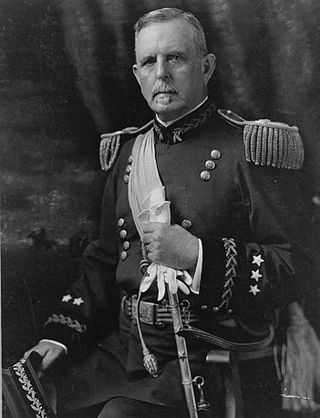
Henry Clark Corbin was an officer in the United States Army who served as Adjutant General of the U.S. Army from 1898 to 1904.
Justin Hodge, born in Roxbury, Massachusetts on April 21, 1815, was a Connecticut politician who served in the state legislature for many years. He represented his hometown of Barkhamstead as a loyal member of the Democratic Party. He served in the U.S. Army during the Civil War as well as the Mexican War before that. He briefly served as the Adjutant General of Connecticut in 1855.
Elihu William Nathan Starr, born in New Haven, Connecticut, on August 10, 1812, was the ninth Adjutant General of the State of Connecticut. He was later elected to the position of town clerk for the City of Middletown. He also served as treasurer and Judge of Probate
Joseph D. Williams, born in Lebanon, Connecticut in 1818, was an American general. He was the twelfth Adjutant General of the State of Connecticut. He was elected to the Connecticut State Legislature, and was appointed Adjutant General and Paymaster General in 1855. He was a member of the Connecticut Historical Society, Good Templars, and son of the American Revolution, and he was a Republican.
Horace J. Morse, born in Norwalk, Huron County, Ohio, on December 30, 1838, was the thirteenth adjutant general of the State of Connecticut. In 1868 he became a partner in A.M. Kidder &Co. Amor M. Kidder, who founded the firm in 1865 and was succeeded as senior partner by Morse. Horace J. Morse was an organizer and former vice president of the People’s Trust Company of Brooklyn. He also was a receiver for the Long Island Traction Company and president of the Iowa Central Railway. He worked in Wall Street for sixty-three years.

Charles T. Stanton, born in Stonington, Connecticut on November 30, 1839, was the fourteenth Adjutant General of the State of Connecticut. From 1869 to 1875 Stanton was engaged in a sugar raising in Louisiana. Then he returned to Connecticut and was appointed collector of customs for the district of Stonington.
Stephen R. Smith was born in Whitneyville, Connecticut, and was the twenty-fourth Adjutant General of the State of Connecticut. He was an active leader of the Republican Party; he served as an alderman and a councilman. He was also a Grand Marshal at the Grand Lodge of the State.
Frederick E. Camp, was born in Durham, Connecticut on July 1, 1832, was the twenty-fifth Adjutant General of the State of Connecticut. He was a treasurer of the soldier's hospital board. He also worked in the office of Boston and New York Air line Railroad Company at New Haven, Connecticut. Camp also became secretary and treasurer of the Middletown Gas Light Company, which he held until he died. Camp was a republican and a member of the state central committee from 1884 to 1888. In 1877 until 1881 he was a city clerk and treasurer of Middletown, Connecticut.
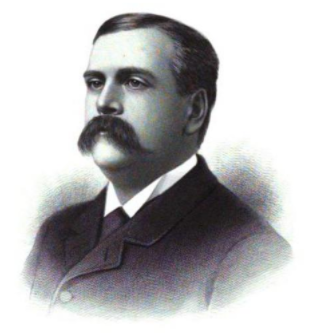
Lucius Albert Barbour was the twenty-six Adjutant General of the State of Connecticut. Barbour was a teller in the Charter Oak Bank. Barbour political affiliations were with the Republican Party. He was a member of the House of Representatives in 1879; he served as the colleague of the late Hon. Henry C. Robinson. In 1884 Barbour became treasurer and president of the Willimantic Linen Co. He was part of the first Congregational Church of Hartford. He was a member of the Hartford Club, Acorn Club of Connecticut, and the automobile club of Hartford. Barbour was identified with Battle Flag Day, being a member of the legislative committee which had the arrangements in charge. Barbour was one of the prominent men of Connecticut. His descendants on both sides of the families have been conspicuous in the history of New England for over two and a half centuries.

Edward Elias Bradley was the twenty eighth Adjutant General of the State of Connecticut. Bradley served as president of the Boston Buckboard and Carriage Company. He also headed the News Publishing Company. Bradley during 1901 to 1903 was the president of the New Haven Chamber of Commerce. He was commissioner of the public parks of New Haven from 1888 to 1901, and in 1910 became the president of the parks commission. Bradley was president of the Governor’s staff Association of Connecticut from 1903 to 1911. Bradley was president of the Defender Monument Association, which raised funds for the defenders monument to commemorate the successful defense of the West River. He was also the president of the Young’s Men Institute. In 1883, Bradley represented the town of Orange, Connecticut in the general assembly. Bradley was a Democrat and introduced and advocated the constitutional amendment for biennial sessions of the Legislature, which was accepted. He was the director of New Haven National Bank and was the director of Quinnipiac Fire Insurance.
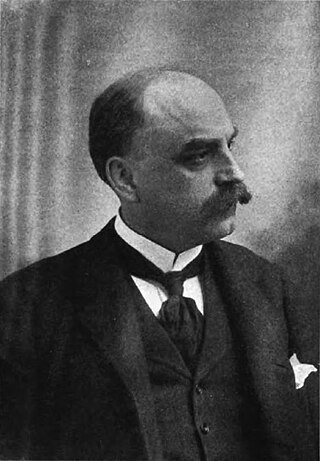
Louis Nelson Van Keuren, born in Wurtsborough, New York on April 17, 1850, was the thirty-first Adjutant General of the State of Connecticut. Van Keuren worked as a clerk in a book store in Bridgeport, Connecticut. Before Van Keuren was 20 years old he became a Cashier and Head Accountant in Pacific Iron Works, Bridgeport. He was also a secretary and treasurer for seven years for Bridgeport Gas Light Company. Keuren for ten years was a general manager of the banking house of T.L. Watson & Co of Bridgeport. Van Keuren was president of the board of Appointment and Taxation of Bridgeport. In 1899 he was offered the position of secretary and treasurer by The Colonial Trust Company.
William Ferson Ladd, born in Spencer, Massachusetts on 14, February 1896, was the thirty-third Adjutant General of the State of Connecticut. During World War I, Ladd was an Army pilot.
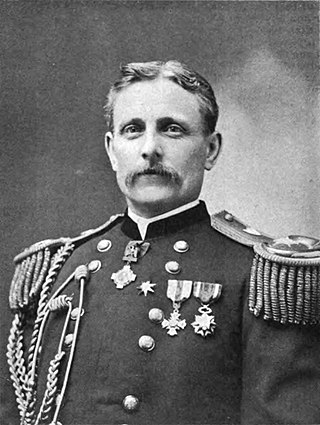
George Malpas Cole, was the thirty-second Adjutant General of the State of Connecticut. He was the son of George Cole and Jane A. Malpas. Born in Portsmouth, England, his family moved to Massachusetts where his father was a civil engineer. Cole was educated in public and private schools. Cole was also tutored by his father, where he became an assistant to his father. Cole would later become associated with a wholesale and a grain business in New London.
Reginald Beardsley De Lacour was the thirty-fourth Adjutant General of the State of Connecticut. From 1927 to 1935, he served as treasurer of the Veteran’s Home commission and served on Governor Trumbull’s advisory board on aviation from 1927 to 1931. He was a chairman of the Fairfield County board of County Commissioners during 1931 to 1935 and was a chairman of the Stratford Republican town committee for many years.
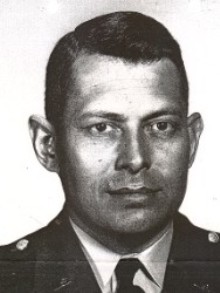
John Frederick Freund was the thirty-sixth Adjutant General of the State of Connecticut.
Frederick Gates Reincke was the thirty-fifth Adjutant General of the State of Connecticut. He went to public schools in Winsted. Reincke was appointed Wethersfield prison warder in 1963. That same year he supervised all the transferred inmates from the Wethersfield prison to the new prison in Somers. His decorations were Legion of Merit, Bronze Star Medal, commendation ribbon, American Defense Service Medal, American Campaign, Asiatic Pacific Campaign and Combat Infantryman badge.

Ratcliffe Hicks (1843–1906) was an American lawyer, industrialist, state legislator, and philanthropist from Tolland, Connecticut. The family home is now the Hicks-Stearns Family Museum. The Ratcliffe Hicks School of Agriculture at the University of Connecticut and the Hicks Memorial Municipal Center and Library in Tolland are named after him.









